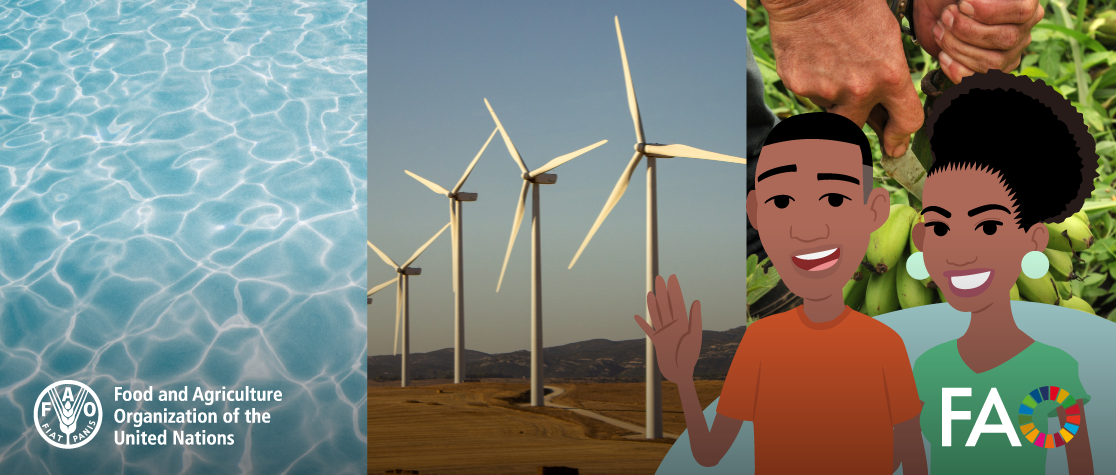New Water Energy Food Nexus E-Course for Caribbean Resilience
Strengthening Water, Energy, and Food Security in the Caribbean

The Resilient Caribbean Initiative (RCI), a collaborative effort between the Food and Agriculture Organization of the United Nations (FAO), the Government of Mexico, and the Caribbean Community (CARICOM), is proud to announce the launch of a comprehensive e-course titled "The Water-Energy-Food (WEF) Nexus: Building Resilience in the Caribbean."
The course was launched on Wednesday 5 February and is designed to equip stakeholders across the Caribbean and beyond with the knowledge and tools necessary to address the interconnected challenges of water, energy, and food security.
FAO’s Policy Officer for Environment and Climate Change, Jacinto Buenfil spoke on the importance and value of the course. “The Water-Energy-Food nexus is critical to ensuring the long-term resilience of Caribbean nations in the face of climate change and resource scarcity. This course, developed in collaboration with FAO Campus and the Amsterdam Centre for World Food Studies of Vrije Universiteit Amsterdam, provides a valuable opportunity for policymakers, farmers, and development professionals to gain practical insights into sustainable solutions that integrate water, energy, and food systems. By equipping stakeholders with knowledge and strategies tailored to the Caribbean context, we are strengthening the region’s capacity to build more sustainable and food-secure communities.”
This e-course builds upon the successes of the RCI’s ongoing efforts to strengthen institutional capacities in CARICOM member countries. Notably, the WEF Nexus Subproject has already provided direct benefits to more than 130 farmers, extension staff, and technical officers in Barbados, Jamaica, St. Kitts and Nevis, and Antigua and Barbuda. Participants in this subproject have undergone training in sustainable agricultural practices, including the use of solar-powered drip irrigation systems, hydroponics, aquaponics, and rainwater harvesting. These efforts, along with the equipment provided by the project, have led to significant improvements in water and energy use efficiency, ultimately enhancing agricultural productivity and resilience to climate-related challenges.
The course begins with an exploration of WEF insecurity in the Caribbean, identifying key issues, underlying causes, and potential solutions. Participants will gain an understanding of the current state of water, energy, and food security in the region and examine the socio-economic impacts of these insecurities. Through case studies and expert insights, the course highlights best practices and innovative strategies that can address these challenges.
The e-course is now open for enrolment and is designed for policymakers, development practitioners, researchers, and other stakeholders committed to advancing sustainable development in the Caribbean.
Interested individuals can access more details and register at https://www.fao.org/in-action/fao-campus/
About the Resilient Caribbean Initiative (RCI)
The RCI, also known as the Mexico-CARICOM-FAO Initiative, was launched in October 2018 to promote climate change adaptation and strengthen the resilience of agri-food systems across 14 CARICOM countries. The initiative focuses on key areas such as the water-energy-food nexus, resilient school feeding programs, and sustainable aquaculture for food security and well-being.
For more information and to enrol in the course, visit the Resilient Caribbean Initiative’s website at FAO Resilient Caribbean Initiative.
Contact
Communications Consultant
Project: GCP/SLC/MEX/018 CARICOM-FAO-Mexico Initiative “Cooperation for Climate Change Adaptation and Resilience in the Caribbean”
Food and Agriculture Organization of the United Nations (FAO)
Policy Officer Environment and Climate Change
Food and Agriculture Organization of the United Nations (FAO)
